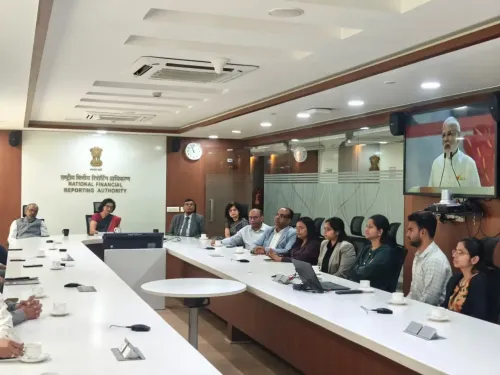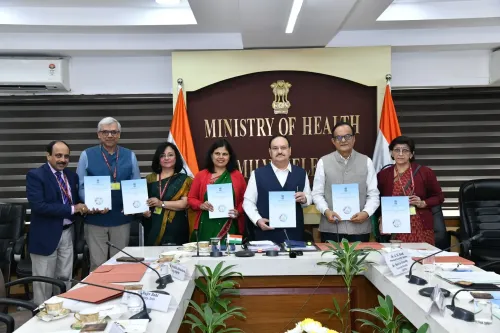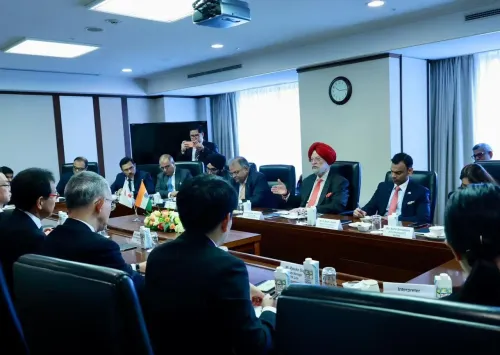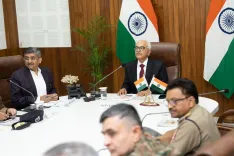How Will the Rs 1 Lakh Crore RDI Fund Enhance Private Sector Research and Innovation?
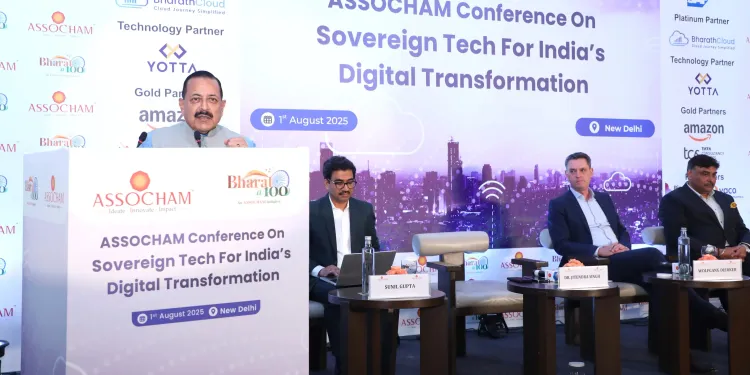
Synopsis
Key Takeaways
- Rs 1 lakh crore RDI fund launched to support innovation.
- Long-term, low-interest loans and risk capital available.
- Focus on deep-tech and transformative projects.
- Government emphasizes collaboration with the private sector.
- Significant startup growth from Tier-2 cities.
New Delhi, Aug 1 (NationPress) The newly introduced Rs 1 lakh crore RDI fund aims to enhance private sector research and innovation, stated Union Minister of State (Independent Charge) for Science and Technology, Jitendra Singh, on Friday.
While speaking at the ASSOCHAM Conference themed ‘Sovereign Tech for India's Digital Transformation’ under the banner ‘Bharat@100’, Singh reiterated the government's firm dedication to achieving self-sufficiency in cutting-edge technologies.
"The government has initiated the ambitious Rs 1 lakh crore Research, Development, and Innovation (RDI) Scheme to revolutionize private sector R&D, particularly in emerging and strategic sectors," Singh explained.
He added that the plan "will offer long-term, low-interest loans and risk capital to support deep-tech, essential technologies, and transformative initiatives."
The RDI Fund is set to be established as a Special Purpose Fund under the Anusandhan National Research Foundation (ANRF).
Additionally, a specific 'Deep-Tech Fund of Funds' will be created to amplify private investment in innovation.
The Minister of Science and Technology highlighted the government's significant policy transition towards greater collaboration with the private sector.
Reflecting on the groundbreaking opening of the Space and Nuclear sectors, which were previously cloaked in secrecy, he pointed out how these reforms have propelled India's space economy to $8 billion, with forecasts suggesting it could reach $40 billion soon.
“We urge the industry to step forward and leverage the vast opportunities presented by the government. India's technological influence is expanding, and global attention is on us,” Singh remarked.
Discussing India's rapid rise as the world's fourth-largest economy, Singh claimed that the foundational reforms implemented in the last decade will soon elevate the country to third place.
Singh also emphasized India's increasing global stature in advanced fields, citing the participation of Indian astronaut Shubhanshu Shukla in an international space mission, showcasing India as a credible and equal technology partner globally.
Importantly, the Minister stressed the crucial need to develop indigenous data repositories instead of depending on foreign datasets, which often lack contextual relevance to Indian requirements.
He proudly announced the accomplishment of the Department of Biotechnology in establishing the Indian Biological Data Centre (IBDC) — India’s national repository for genomic data, which encompasses over 10,000 whole-genome sequences from the Genome India project.
The MoS also shed light on the emerging startup revolution from India's heartland, revealing that nearly 50 percent of Indian startups now originate from Tier-2 cities, with a notable representation of women entrepreneurs.
"This reflects inclusive growth and the democratization of technology," he remarked.
Furthermore, Singh underscored the National AI Mission and emphasized the necessity of a hybrid model that integrates Artificial Intelligence with Human Intelligence, warning against a hasty shift towards automation.

